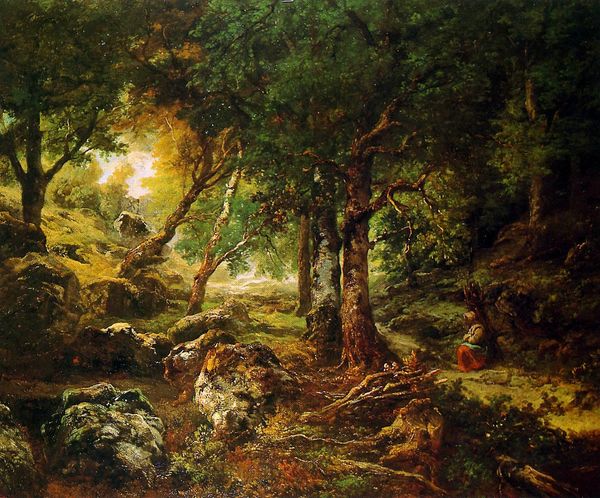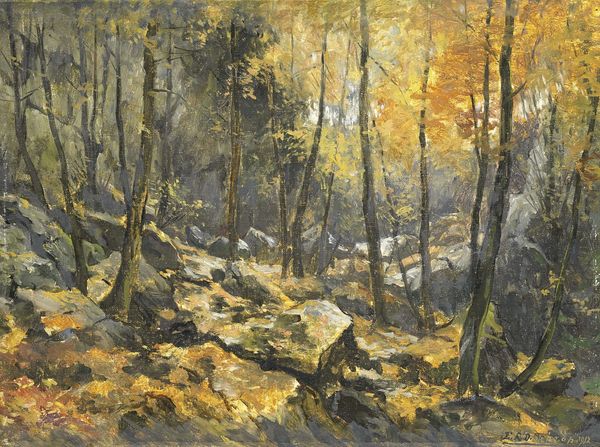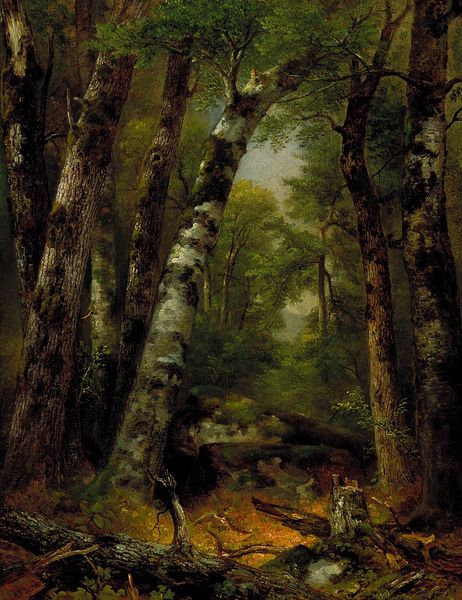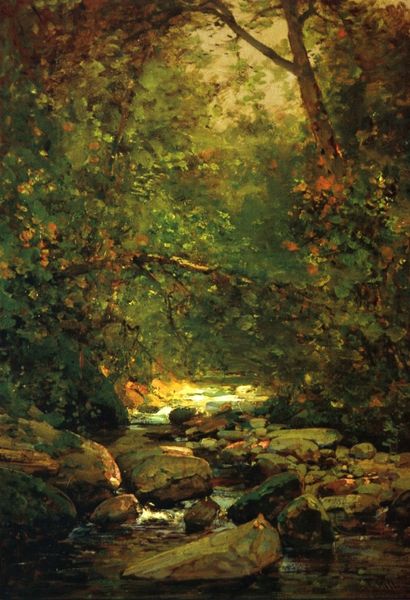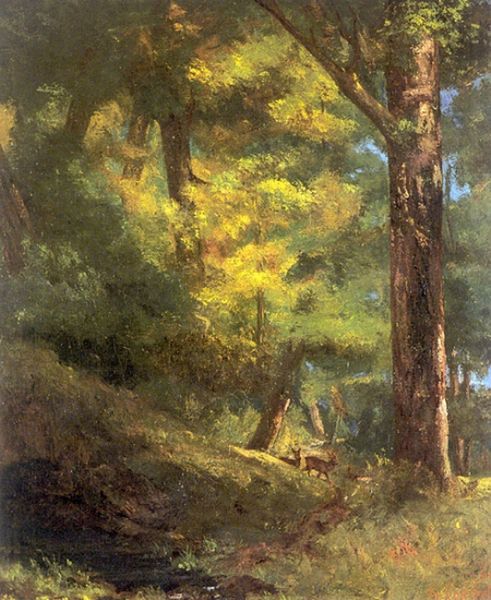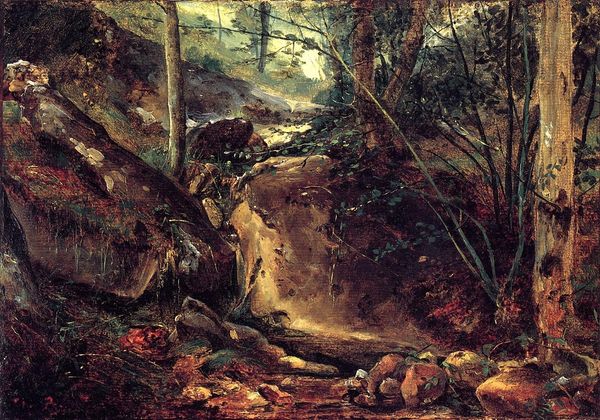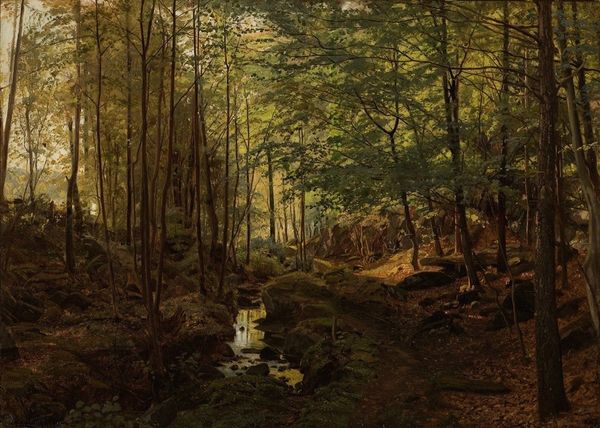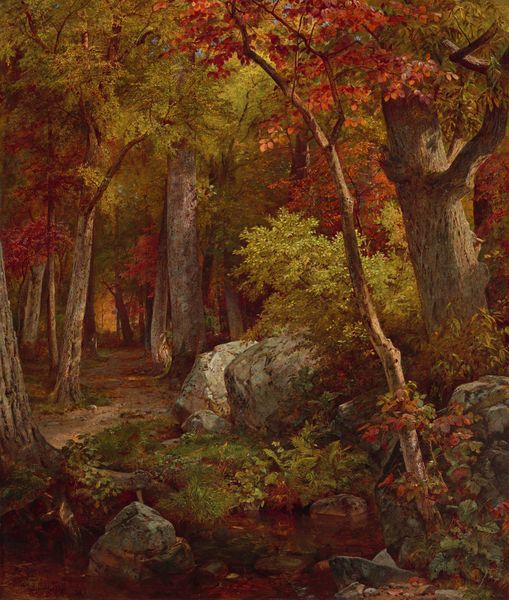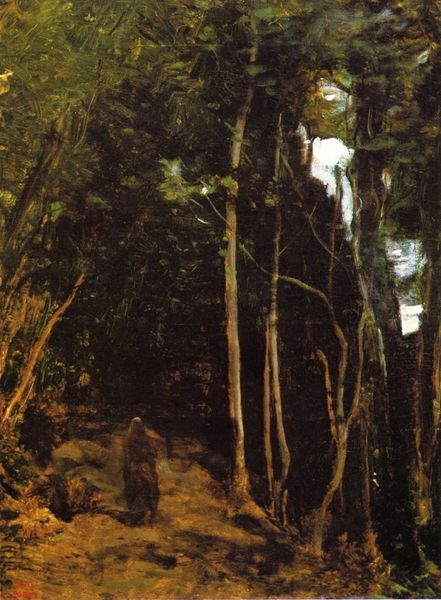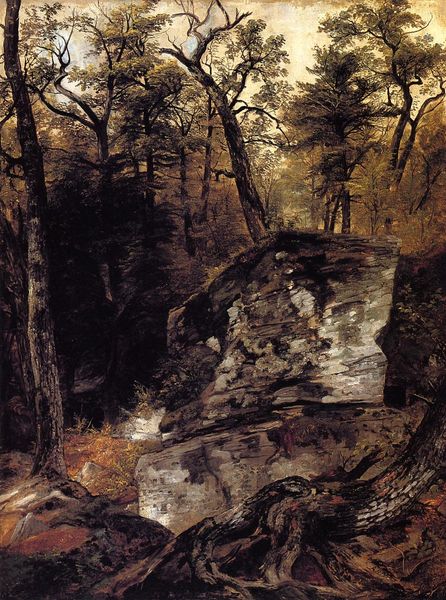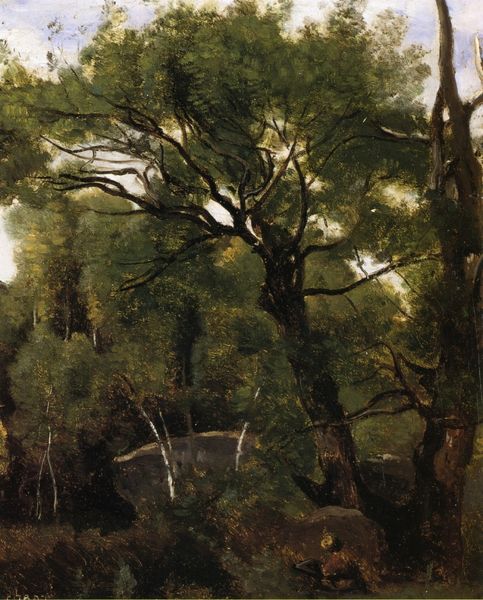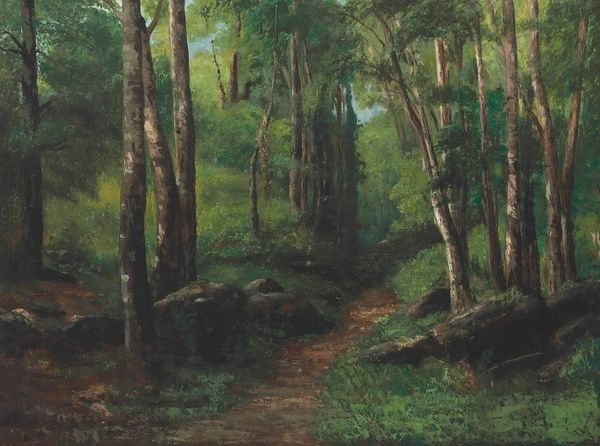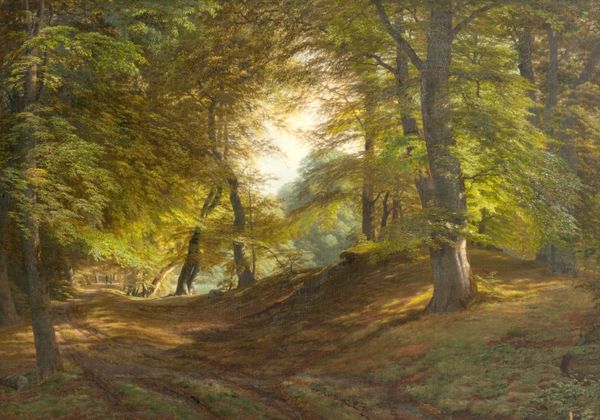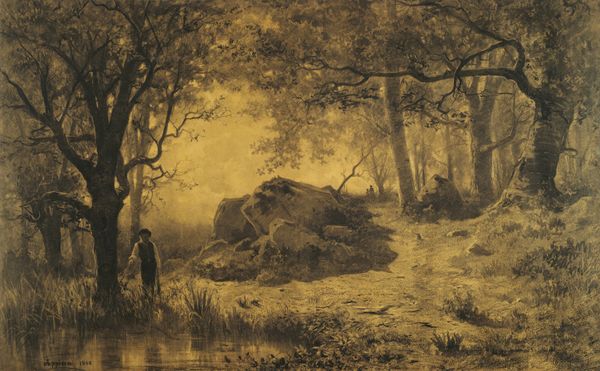
painting, oil-paint
#
tree
#
painting
#
oil-paint
#
landscape
#
impressionist landscape
#
forest
#
romanticism
#
natural-landscape
#
naturalism
#
nature
#
realism
Copyright: Public domain
Editor: So, here we have William Hart's 'Woodland Scene,' an oil painting. The forest feels almost… theatrical? The light is so dramatic. How do you interpret this work? Curator: I see this painting as deeply embedded in the social and philosophical contexts of its time, particularly concerning our relationship with nature. Given Hart’s involvement with the Hudson River School, how might we read this not just as a depiction of nature, but as an assertion of a particular national and cultural identity, particularly in relationship to the land and ideas about Manifest Destiny? Editor: I never thought of it that way. I was mostly focused on the trees and the light. So, you’re saying this romanticized view of nature served a specific political purpose? Curator: Precisely. The representation of untouched wilderness, devoid of indigenous presence—despite their historical claim and inhabitance—contributes to a narrative that legitimizes settler colonialism. It also evokes the philosophical debates surrounding nature in the 19th century, particularly transcendentalism and its emphasis on the sublime power and purity of the natural world as a site of spiritual revelation. Where do the shadowed areas invite our reflections on nature, spirituality and historical displacement? Editor: That makes me see it completely differently! The “untouched” landscape is actually a deliberate erasure. I guess I had an idealized view. Curator: Art is always political, even when it appears to be purely aesthetic. Consider the economic factors, too. These paintings were luxury goods for a rising mercantile class. How does understanding the socioeconomic context shift your view? Editor: I see what you mean. The painting isn’t just about pretty trees; it reflects complex social power dynamics and ideological underpinnings. Curator: Exactly. By situating artworks within these broader narratives, we can have a much more complex and thoughtful discussion about history. Editor: This gives me so much more to consider when I look at landscape paintings now.
Comments
No comments
Be the first to comment and join the conversation on the ultimate creative platform.
